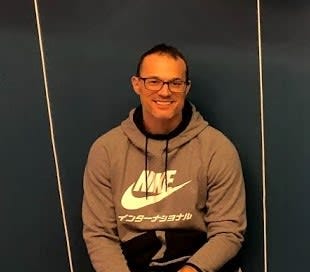The Middle Way
This is the point between our Yin and our Yang. This newsletter helps keeps us there.
Welcome to Episode II of The Middle Way (if you missed Episode I click here).
This week I digested Elliot Peppers’ latest book in his Analog series, Breach, and if you like science fiction, tech and want to make some guess at where things could go, this is a great place to start.
Additionally, I heard Jared Cohen talk about his new book Accidental Presidents in Chicago. Jared reminds us how much randomness we face and how slippery the sands of history can be. Its complex system outcomes that leads to events that we tell stories around. Our stories aren’t truth and we can’t even begin to test any counterfactuals. That is code for keep your identity small and watch your convictions. If you have strong opinions hold them loosely.
What are you leveling up?
I’m running 100% ish, or as much as you can run with a 4 month old, a three year old and a full time gig, on trying to level up my writing game.
You my friends, get to experience it first hand. We are starting out here and we will be ending up there. Yes, there is no there there, but it should get better.
Writing currently feels like trying to get up on a surf board for the first couple times. It seemed easy on the beach, but now there is sun in my face as I try to read the waves and I need to watch out for the mess of other surfers. Oh yeah and I forgot to put sunblock on my legs, so they are getting red!
What are you leveling up? What projects are you doing to support your leveling up? Reach out and let me know.
LINKS - Top of the Order
How Networks Work by Kevin Simlar
Brad Stulberg interviews David Epstein on his new book Range: Why Generalists Triumph in a Specialized World.
This idea plays homage to Buckminster Fuller’s preaching of the Genius of Generalists and warning that “specialization tends to shut off the wide-band tuning searches and thus preclude further discovery”.
In this interview Epstein notes that:
Teachers that help their students best in their class today, undermine the development of the students tomorrow
Best performance in the short run, may cause the worst development in the long run
Introduce variety in whatever you are doing
TRY STUFF
Get COACHING (see below)
Don’t specialize (TRY STUFF)
We learn who we are in practice not in theory (This dovetails nicely with Nassim Talib’s ideas of Skin in the Game —> its not what someone says, but what someone does. If you want investment advice let me see what you invest in, not what you tell me to invest in)
What he sees as the next big thing is having a coach watch over you for the activities you care about!
Directly from the article:
What do you see as the “next big thing” in talent development?
Outside of sports, I think there is still tremendous untapped value for the kind of coaching that already occurs inside of sports. I would love to have a coach walking hand-in-hand with me as I try to learn about myself and improve my writing, the same way I did when I was running. I think there is a grand total of zero professions that couldn’t benefit from coaching. I think most of us, when we become competent, keep doing the same things over and over. We get stuck in a rut of competence because we gravitate toward ease and convenience. We have to vary up our challenges to avoid plateaus, and I think coaches can really help with that.
The Basketball of Improv by Jorin. A great way to think about an improv team and what is needed to have a successful improv troupe using basketball positions.
Podcasts
Steven Koetler on the Finding Mastery Podcast - Mastery is a to do list of ten things. Do them everyday and get plenty of rest and recovery. Its not sexy.
Book Notes
All Gain, No Pain by Bill Hartman
Many times, our aches and pains are the result of a similar phenomenon. Stress alters our ability to move and even breathe efficiently. This results in increased pressure, tension, or load on joints or muscles. In many cases, if we can “turn off” undesired muscle activity and breath effectively, movement is restored and pain can resolve. (Location 612)
Teachings of Gurdjieff by C. S. Nott
While we drank coffee, Gurdjieff spoke of the difficulties he encountered in getting money for his work. ‘People will pay anything for trivial things,’ he said, ‘but for something they really need, even in ordinary life, they will not pay.’

That’s a wrap. Please reach out with any comments / thoughts / ideas and forward this along to anyone that you think would find it useful.
Christian




